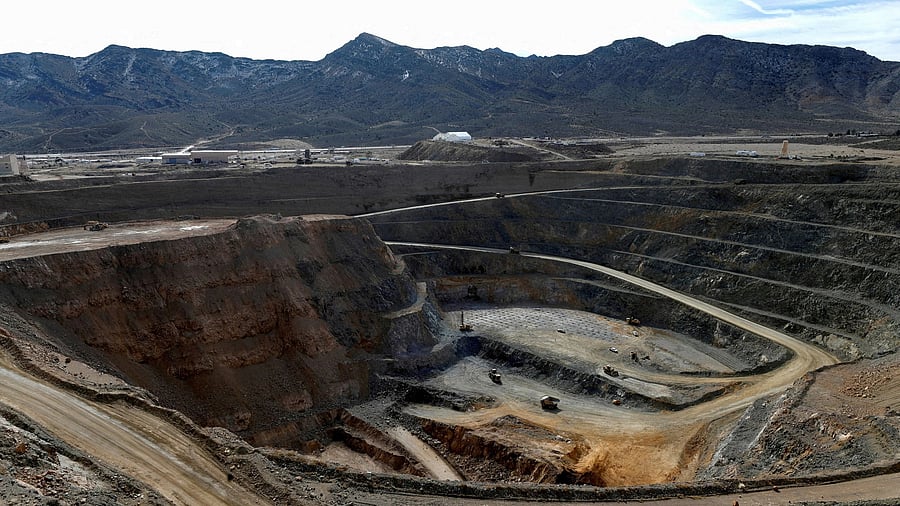
A view of the MP Materials rare earth open-pit mine in Mountain Pass, California, US
Credit: Reuters photo
New Delhi: The Centre on Wednesday announced a Rs 7,280-crore incentive scheme to boost domestic manufacturing of rare earth magnets, which are used in several industries including electric vehicles, aerospace, electronics, medical devices and defence.
Out of the total outlay, Rs 6,450 crore will be spent on providing sales-linked incentives on rare earth permanent magnet for five years.
The scheme also includes a capital subsidy of Rs 750 crore for setting up an aggregate of 6,000 tonnes per annum of rare earth permanent magnet manufacturing facilities, Union Minister Ashwini Vaishnaw told reporters.
The scheme was approved by the Union Cabinet chaired by Prime Minister Narendra Modi.
The total duration of the scheme will be seven years from the date of award of contract, including a two-year gestation period for setting up an integrated rare earth permanent magnets (REPM) manufacturing facility, and five years for incentive disbursement on the sale of REPM.
The scheme envisions allocating the total capacity to five beneficiaries through a global competitive bidding process. Each beneficiary will be allotted up to 1,200 metric tonnes per annum of capacity.
At present, almost all of India’s REPM needs are met through imports, China being the main source. Despite possessing the world’s fifth largest rare earth reserves, India contributes barely 1% to global production. China enjoys near monopoly accounting for nearly 90% of the global refined magnet production.
This makes global manufacturing vulnerable to China’s dominant supply chain. This became evident when China recently put curbs on exports of rare earth magnets amid escalating trade tensions with the United States. It caused global supply chain disruptions, badly impacting automotive and electronics sectors globally, including India.
This incentive scheme, along with the National Critical Mineral Mission announced earlier this year with an outlay Rs 34,300 crore, would significantly help reduce India’s dependence on imports to meet the needs of rare earth magnets.
“The proposed support for magnet manufacturing, a segment where India has historically depended on global supply chains, can unlock new opportunities across mining, processing, alloying and advanced materials,” said Raju Kumar, Partner and Energy Tax Leader, EY India
Welcoming the move, Society of Indian Automobile Manufacturers (SIAM) president Shailesh Chandra said the scheme would accelerate adoption of clean mobility solutions and support India’s broader sustainability goals.
“By strengthening indigenous manufacturing capabilities, it will contribute to reducing carbon emissions and lowering dependence on crude oil imports, further enhancing the nation’s energy security,” Chandra, who is also managing director and CEO of Tata Motors Passenger Vehicles, added.
REPMs are critical to the automotive value chain, particularly for electric drivetrains, motors, sensors and advanced electronics, and are equally vital for renewable energy, aerospace, defence and industrial applications.
“This is a strategic and forward-looking intervention that addresses one of the most critical gaps in the EV and advanced mobility ecosystem,” said Vikrampati Singhania, president, Automotive Component Manufacturers Association of India (ACMA).
“For the automobile sector, localising rare earth magnets will boost growth for both auto OEMs and component manufacturers, support clean energy powertrains, reduce import dependence, deepen the domestic value chain, and enhance long-term competitiveness,” said Stephane Deblaise, CEO, Renault Group India.
“We welcome this vision and look forward to contributing to a robust, future-ready mobility landscape that supports India’s sustainable growth and its ambition to become a global automotive hub,” Deblaise said.